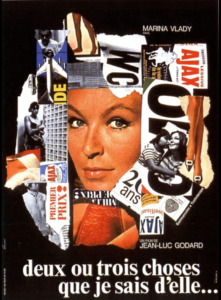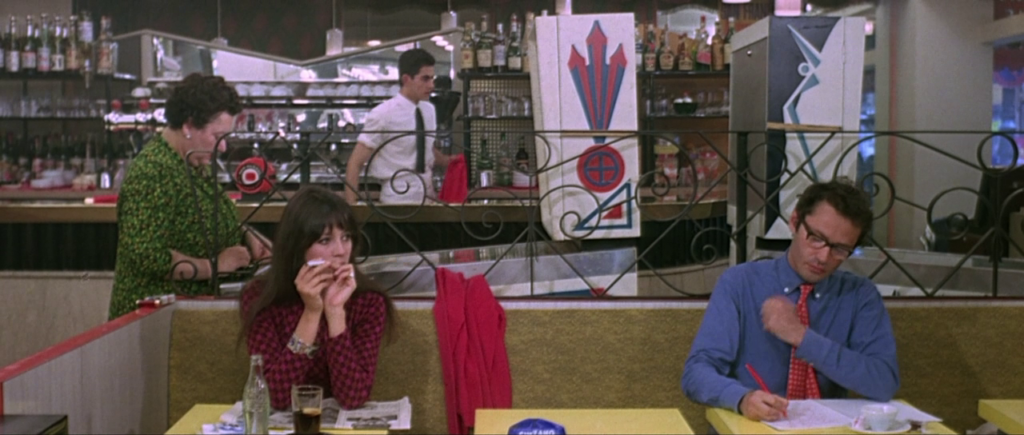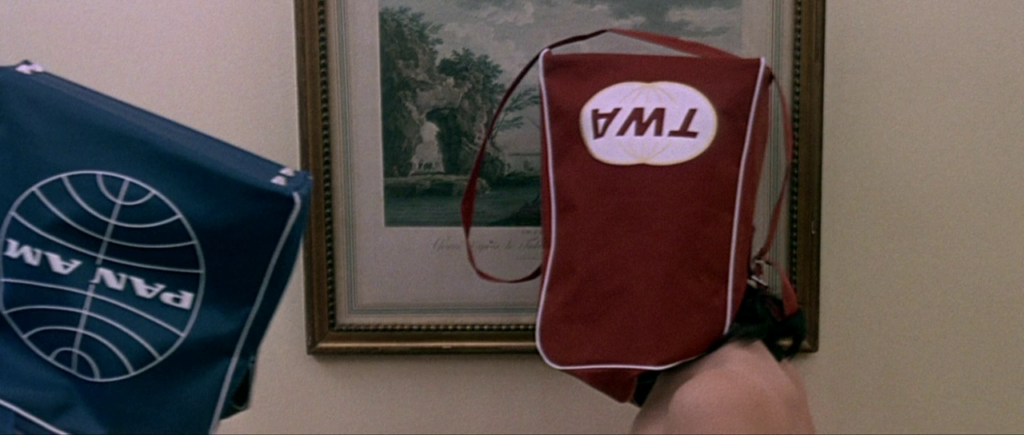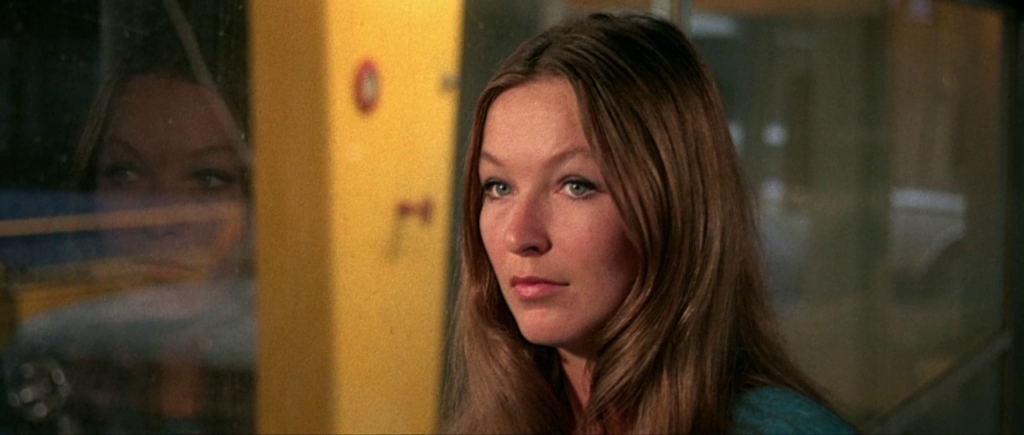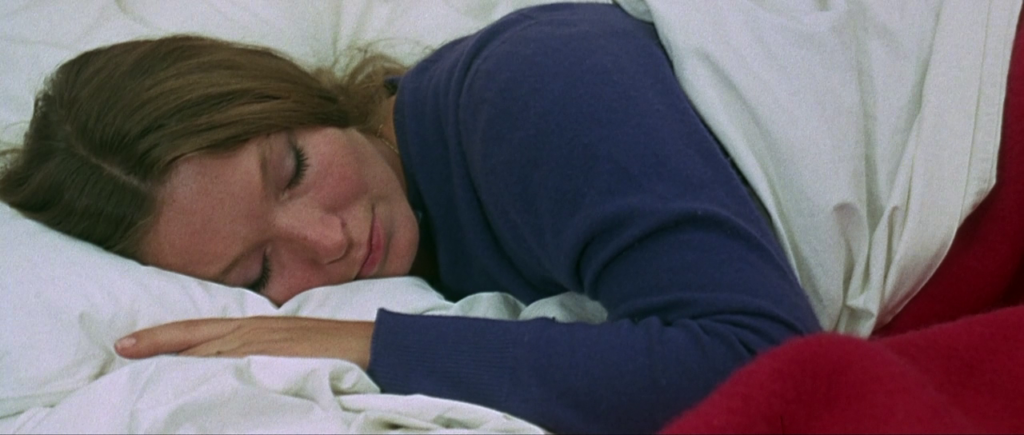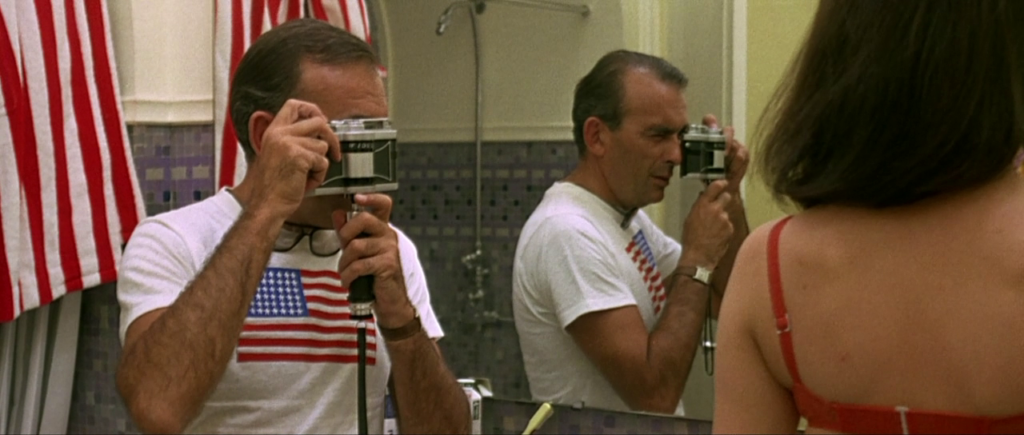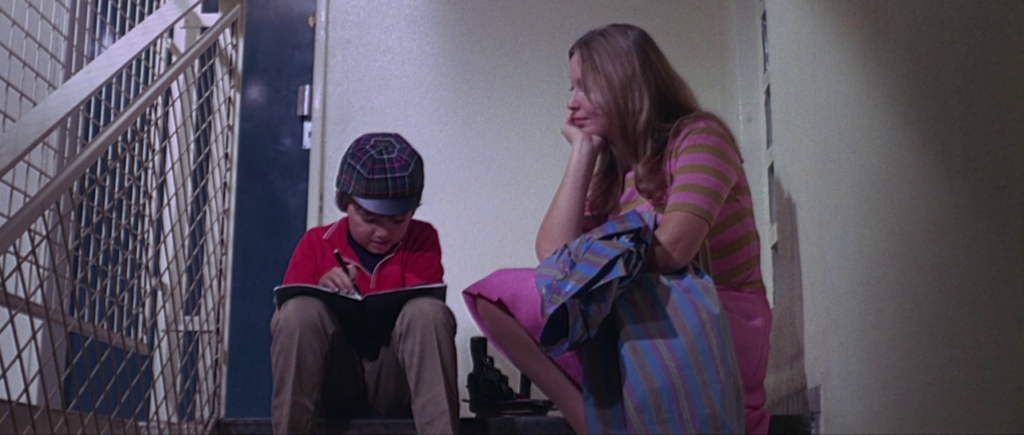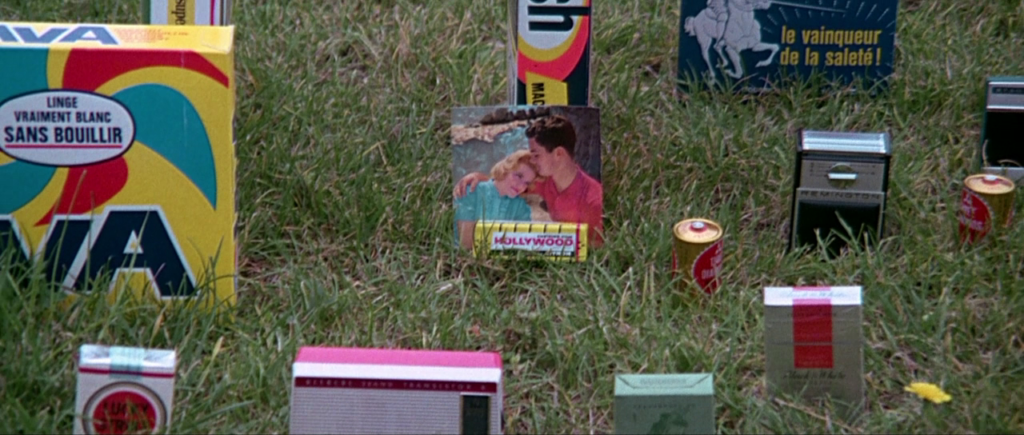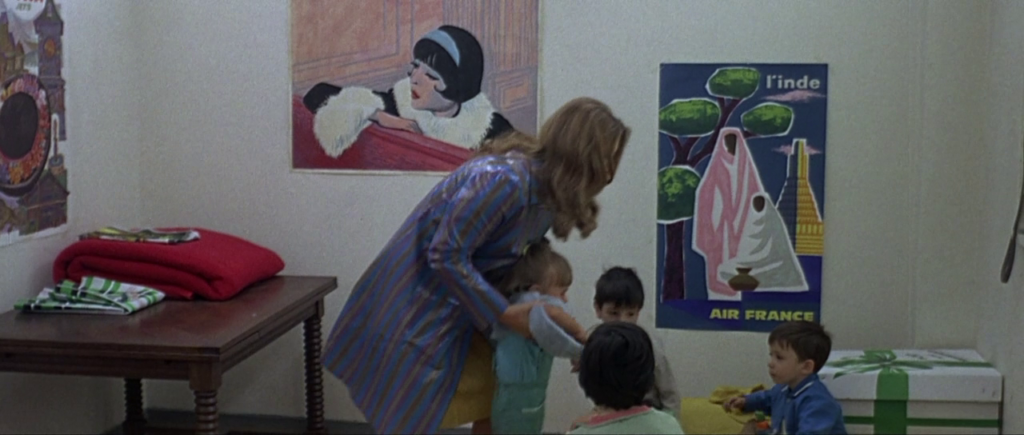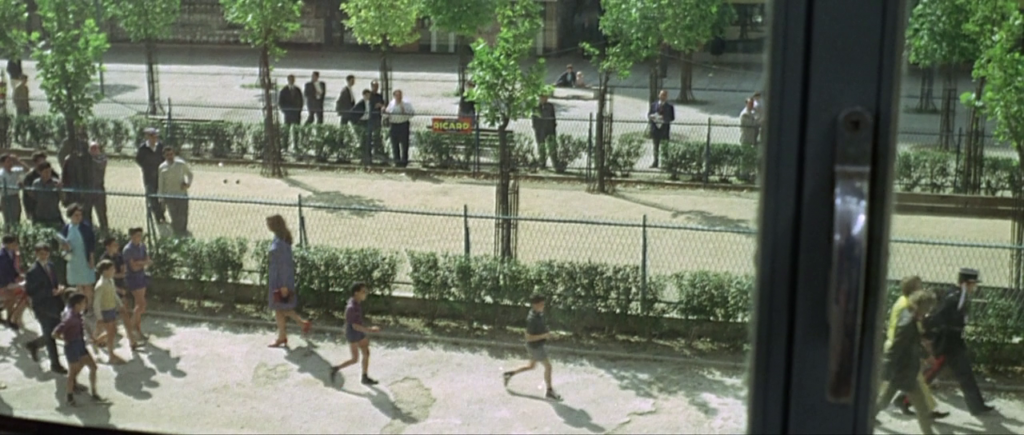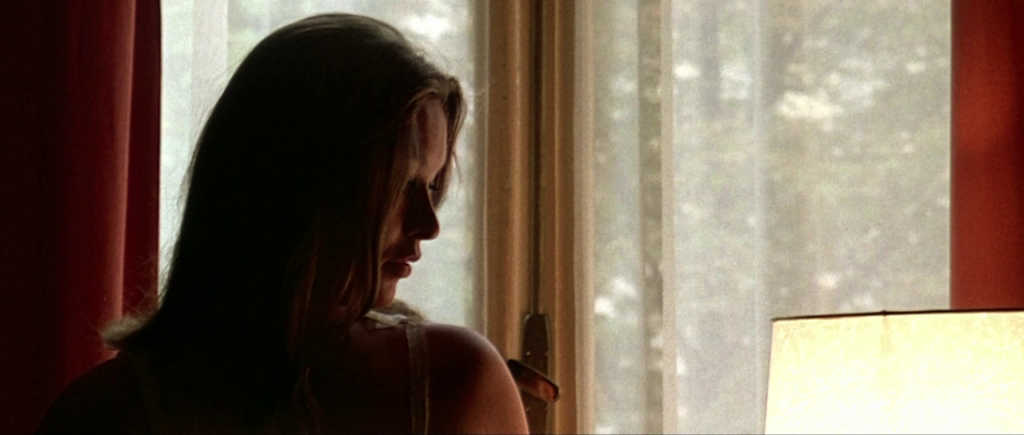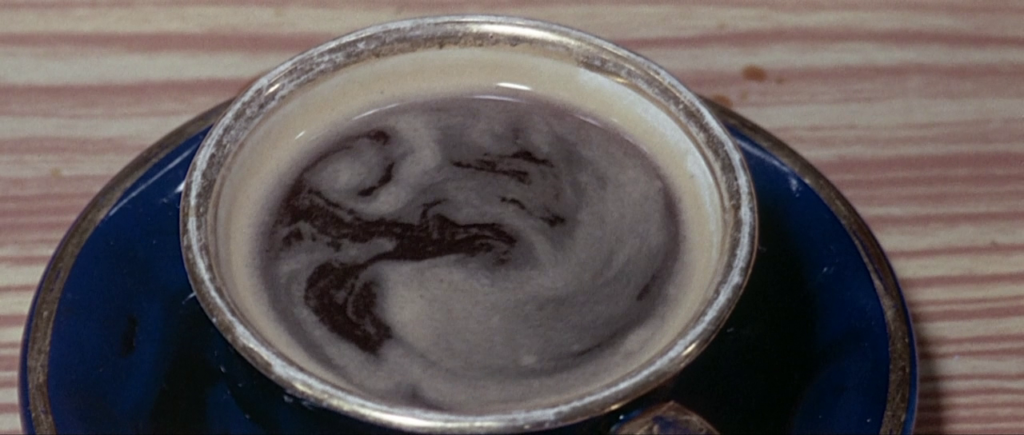2 or 3 Things I Know About Her (1967)
“What I say with words is never what I’m really saying.”
|
Synopsis: |
|
Genres, Themes, Actors, and Directors:
Review: DVD Savant offers a more measured analysis, referring to it as “an attractive slide-show lecture and poetry recital” which “minimizes the contribution of conventional acting” (!!) and is simultaneously “engaging, titillating and frequently frustrating.” I’m more in alignment with Savant’s assessment. Having just finished watching and reviewing the two films Godard made before (or alongside) this one — Masculin-Feminin (1966) and Made in U.S.A. (1966) — it’s easy to see this cinematic essay as both a culmination of his continuing obsessions, and a clear marker of his shift into more overtly political films. Its lack of likable characters is a challenge, as is the fact that Godard was feeding lines to his actors (he was apparently angry at Vlady for refusing to marry him in real life, though he had just met Anne Wiazemsky and was moving on). Of note stylistically-speaking is Godard’s frequent juxtaposition of red, white, and blue within the frame: … his typically avant-garde use of sound and music; and, of course, an ongoing emphasis on pop culture, advertising, and consumerism. Note: The film’s most devastating scene shows Vlady emotionlessly dropping off her crying young daughter at a daycare (which also functions as an armed brothel): … then walking outside to become part of the anonymous masses. Ouch. Notable Performances, Qualities, and Moments: Must See? (Listed in 1001 Movies You Must See Before You Die) Links: |
